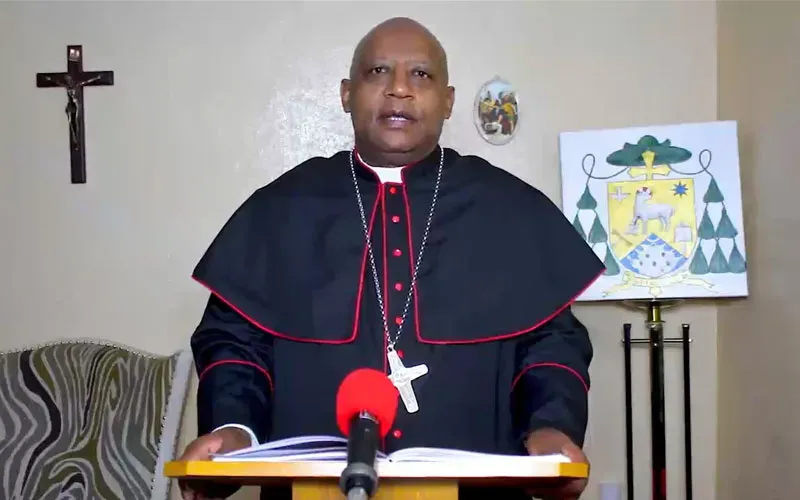He encouraged South Africans not to allow the highlighted challenges to overshadow Freedom Day celebrations and asked the people of God not to lose hope.
“We have challenges. But let us not allow those challenges to deny us a moment of celebration, because the victory of South Africa or South Africans was in 1994, when we could all go to vote”, he said.
Bishop Phalana urged South Africans to exercise their rights by participating in elections “intelligently … not blindly”. He said, “It’s up to you and me to try and save this democracy to try and protect this democracy to ensure that we do not become a failed state. And we can do that by going to vote. Vote intelligently, not blindly.”
The CPLO Liaison Bishop also called upon South Africans to work with the government in finding solutions to the country’s high unemployment rate.
He said, “We also have to help our government to come up with creative ideas of how to create employment for our youth, how to fight abject poverty, how to deal with the issue of inequality among our people, and how to deal with gender-based violence.”
(Story continues below)
The Local Ordinary of Klerksdorp Diocese added, “We can really do more; we are not spectators; we have been saved by God, to make a difference in our country to ensure that there is social justice, peace, development, and prosperity. We cannot leave it all to politicians.”
He went on to laud efforts being made by the Cyril Ramaphosa-led government to ensure that children have access to free education, that the poor and unemployed have access to monthly monetary grants, free housing, and medical care.
“The 27 of April must also be a day of prayer, so that we can give God thanks for the freedom that we have. Many of our neighboring countries do not enjoy what we enjoy here in South Africa,” Bishop Phalana said.
He explained, “We enjoy free basic education; we enjoy free basic health care; we enjoy grants and pensions for the elderly, grants for the unemployed working mothers, for their children; we enjoy the peace. While even our neighboring countries do not enjoy peace, we have peace.”
He continued, “I think for those with a short memory, who do not know what living under apartheid colonialism was like, perhaps for them, this means nothing. But for some of us who lived under that, we know what we have right now.”
“The freedom that we have has restored our dignity; our human rights are being respected. And we feel that we belong to South Africa; that South Africa belongs to all who live in it. So, we have every reason to celebrate”, Bishop Phalana told ACI Africa April 28 in reference to the annual Freedom Day in South Africa, marked on April 27.
Sheila Pires is a veteran radio and television Mozambican journalist based in South Africa. She studied communications at the University of South Africa. She is passionate about writing on the works of the Church through Catholic journalism.





